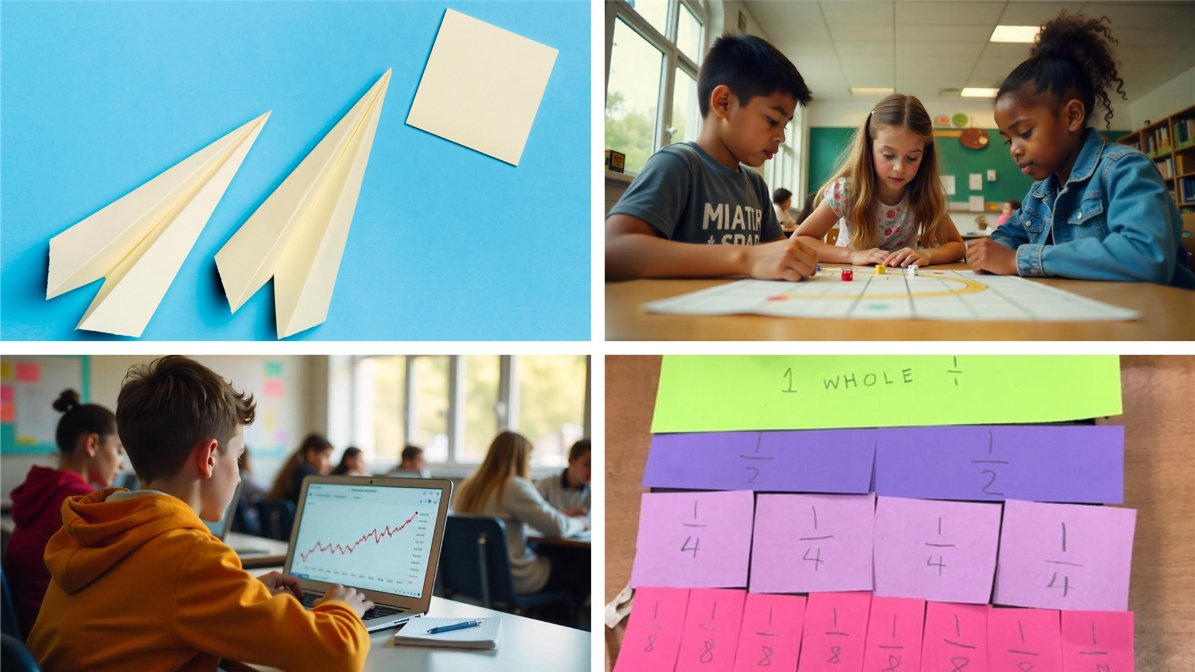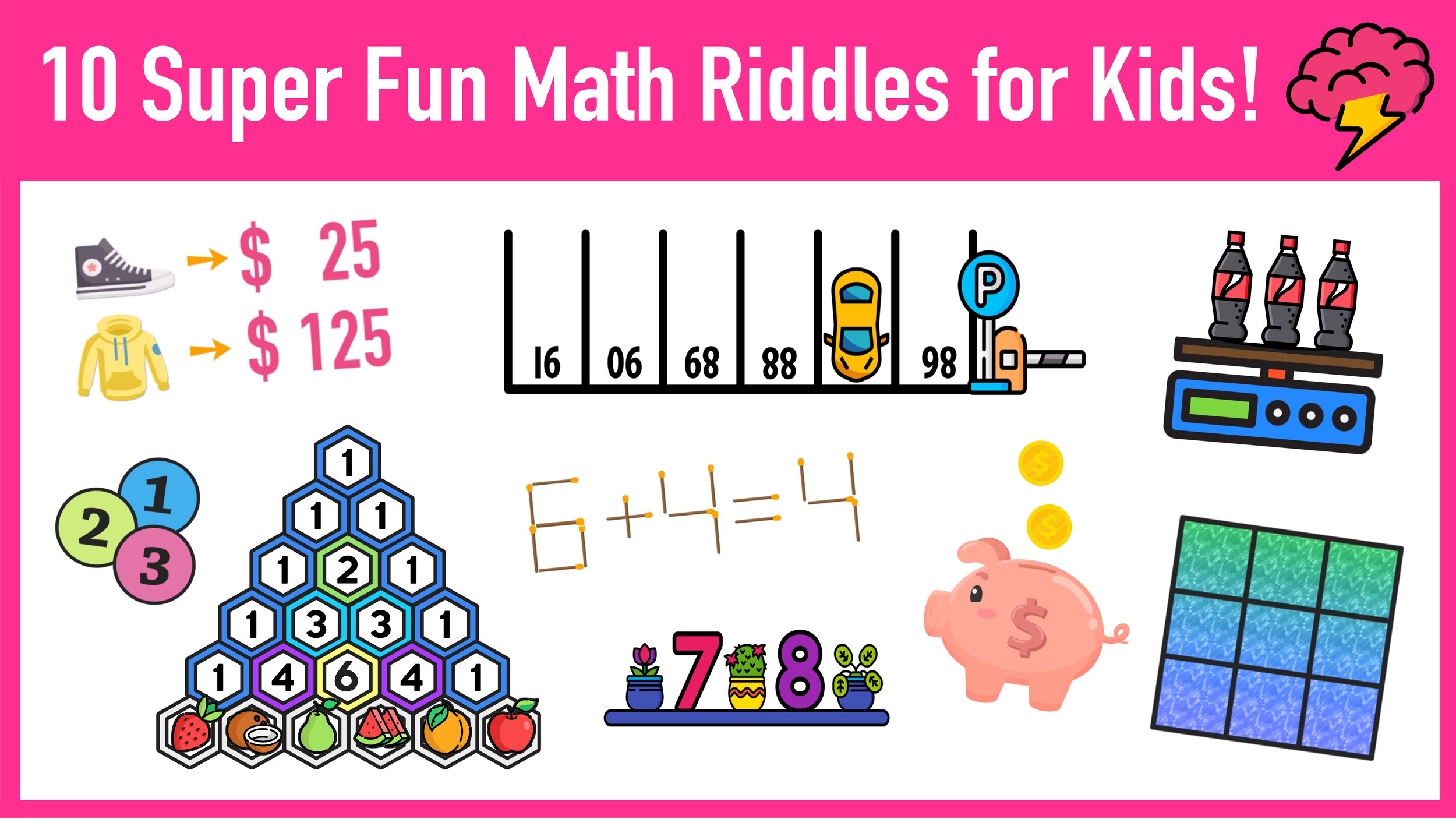Image: Mashup Math MJ
A Message to New Teachers: Failure, Feedback, and Focus
I tend to sweat profusely when I’m nervous.
And being observed for the first time, one month into my teaching career, was exceptionally nerve-wracking.
The lesson was supposed to center on a group activity where students would work through math problems using algebra tiles.
But we never got that far.
In fact, we never made it past the warm-up problem.
Because I freaked out.
New teachers aren't instinctively comfortable in front of a classroom, and this discomfort is amplified when an administrator is in the room. In response, they often play the character of the teacher they think they ought to be, instead of just being themselves.
At least that’s what I did on this occasion.
Three students were called to answer the warm-up problem. All three answered wrong. Overwhelmed by a sinking feeling and an irrational state of panic, my mind started to race.
What does this say about my teaching skills?
Are my students even learning anything?
Am I going to be labeled as a bad teacher?
The students watched me squirm. They noticed my cheeks turning red and giggled at the sight of my Frisbee-sized armpit stains.
The captain has turned on the fasten-seatbelt sign. Prepare for a bumpy ride.
The only thought I had was to begin reteaching the lesson from the day before.
Bad idea.
Everything moved too fast, anxiety clouded my judgement, and my composure vanished along with my students' interest in anything I was saying.
All I could do was ride out the clock as I crashed and burned.
Defeated, I was left to wonder:
Why are my students not engaged?
Why do other teachers seem so much more confident and comfortable in front of the classroom?
Am I really cut out for this?
A horrible day. One that I will always remember. Because it turned out to be one of the most valuable lessons that I have ever learned.
Now let me explain why.
Dear First-Year Teacher,
Image: Mashup Math FP
The end of summer brings a fresh crop of energized, excited, and mostly naïve new teachers, ready to take on the responsibilities of a professional educator.
In the coming weeks, you will find yourself standing before a classroom filled with your own students.
Their fate will be entirely in your hands.
I'm sure that you have been imagining what your ideal classroom will look like. All of those fun activities you’ve been saving on Pinterest boards being acted out by your angelic little students, who are always motivated and cooperative and eager to learn.
Pure educational awesomeness.
Yeah, about that.
(In the voice of Morpheus) What if I told you that your vision is a sham?
Your first year of teaching is going to be anything but ideal.
It’s going to be messy and, on many occasions, it’s going to, well, it's going to really suck.
And that’s okay.
It’s supposed to be that way.
In fact, it needs to be that way.
I’m writing this letter to share why a rough first year, peppered with highs and lows, is the best thing that can happen to you (assuming that you plan on becoming a lifelong educator, which, of course, you do!).
Does anyone actually like fluff?
There will be no cliché’ “new teacher advice” included in this letter.
None.
Let someone else say you’re amazing and make you feel like a finished product.
Let someone else make you believe that students are going to be predictable little marshmallows covered in sugar, always meeting your every expectation.
Yes, teaching is amazing and rewarding and a whole lot of fun most of the time.
But it can also be, at times, demanding and draining and downright discouraging.
And, if you’re going to be a true difference maker, then you must be prepared to take the bad with the good (and use it as a tool for growth).
Do you have what it takes?
Image: Mashup Math FP
Before we go any further, let’s get one ugly fact out of the way: for some of you, this will be your first and last year of teaching.
4 in 10 new teachers will quit within their first year, according to a study recently reported on by The Guardian.
Sad, but true.
You can either allow this information to scare you or empower you.
I recommend the latter.
Let it be a spark that forces you to reflect upon why you chose to enter education in the first place.
Do you have a strong answer?
If not, let me help you to focus your energy on the right ideas, so you don’t mistakenly choose to quit teaching for the wrong reasons.
Be prepared to feel unprepared
Every great performer was once a beginner. Embrace this role and use mistakes as opportunities for professional growth.
You aced all of your college classes, attended new teacher orientation, and know an awesome teacher who shared all of her lesson plans with you.
You’re totally ready to teach, right?
Nope.
You can’t be.
Because, when it comes to teaching, there is no substitute for experience.
And you have none.
Make peace with the fact that, at times, you're going to feel unprepared, overwhelmed, and in-over-your-head.
These feelings are normal and a vital part of the growth process.
Every great teacher has a collection of battle scars—i.e. failed lessons, blundered interactions with parents, mishandled situations with administrators, etc.—that have forced her to reflect, adjust, and grow.
When you see a veteran teacher who is always calm and comfortable, remember that she has already endured all of the growing pains that you have yet to experience.
Your time will come, but you have to pay your dues.
Be ambitious and fail hard.
Being ambitious and taking creative risks will make you a better teacher in the long run.
I’m glad that my first observation was a disaster.
It took months for me to learn that playing safe is a bad idea. Experience taught me the value of taking risks and experimenting with progressive lessons and activities—many of which turned out better than I had expected.
New teachers are bad at predicting how a lesson will turn out. The best approach is to simply make an attempt. None of my experimental lessons ever went so bad that I chose to never use them again.
After making adjustments based on my reflections, the second attempt at these lessons was always much more effective. By the third try, they were running like a well-oiled machine.
As long as you reflect on what went well and make notes about how you can improve the lesson in the future, you’re supporting your own professional growth.
Becoming a great teacher is a marathon, not a sprint.
Seek the right mentors and ignore the 'Crabby Patties'.
Image: Mashup Math MJ
Surrounding yourself with the right people may make the difference between sticking with the profession and giving up entirely.
Here’s a controversial statement: the most experienced teachers are not always the best mentors and there are many teachers whom you should avoid whenever possible.
Teachers need to collaborate. The benefits of mentorship are immense. But, it’s imperative that you surround yourself with those who are inspired and inspiring.
Every employee population has a small percentage of individuals who reflect poorly on the whole, and teaching is no exception. Every school has a handful of teachers who are simply going through the motions (I’ve been in dozens of schools and have yet to find the exception to this rule).
These teachers love to complain…about everything.
You can often find them whining about how lazy they think today’s students are and making excuses for why they can’t motivate them.
I often refer to these teachers as Crabby Patties.
Stay away from them.
If you want to be a successful teacher, surround yourself with positive people who will support your efforts and show you how to learn from mistakes.
For every Crabby Patty, there a dozen or more teachers who can genuinely help you. Even if they teach a different subject, their mentorship will make a world of difference during your first year and beyond.
And when you’re having that inevitable bad day, you’ll want someone who can pick you up and motivate you, not someone to commiserate with.
Harsh feedback is good feedback.
If your goal is becoming the best teacher that you can be, then learn to be vigilant in seeking constructive criticism.
Students are not engaged.
Weak classroom management skills.
Lesson plan lacks flexibility.
My first observation report was ugly and reading it felt like a punch to the gut. Still, I needed the truth, because I needed to improve if I expected to grow as an educator.
Every great teacher wants to become a better one.
Constructive criticism combined with suggestions for improvement is what helps you make the transition.
Teachers who seek only warm and fuzzy feedback are missing out.
You know, the chicken noodle soup for the ego kind of feedback that is basically good for nothing:
You are such an amazing teacher!
What a great lesson!
The kids all love you!
Receiving this empty feedback feels good, but it doesn’t make you better.
Take it with a grain of salt and seek feedback that will force you to pursue self-improvement.
You and your students will reap the benefits in the long run.
Find purpose in making a difference.
Image: Mashup Math MJ
While my idea of an effective teacher continues to evolve with each passing school year, I can say with certainty what attributes are not included in my definition.
High test scores are great, but your job is not to teach students how to pass an exam.
Strong evaluations are wonderful, but your job is not to earn the praise of administrators.
A light workload is nice, but your job is not to get through the year via the path of least resistance.
Your job is to make a difference—whatever that means to you, personally—in the lives of your students.
Is that a vague statement?
Yup.
It’s supposed to be.
Because the answer is different for every teacher.
I wasn’t being dramatic when I shared that I had questioned whether or not I was cut out for teaching.
Despite my embarrassment, confusion, and bruised ego, I decided to hang around for one important reason: I was driven by purpose.
Making a difference in the world, even on a small scale, has always been my life’s goal. I realized that being a teacher was my opportunity to achieve it, and, if I had to endure some bumpiness along the way, then so be it.
Now, ask yourself: what is your definition of making a difference as a teacher?
If you don’t have a strong answer, then you need to take some time to reflect upon why you chose this profession.
Your honest response will be the beacon that guides you through the ups-and-downs of the school year.
Reflect until there is a flame of inspiration burning in your heart. Take notes. And let every small victory throughout the school year serve as kindling to that flame.
For every time that you help a child to learn, to feel accepted, to feel accomplished, to feel loved, you are feeding that flame.
There will be days when it rages, and days when it barely smolders, but, as long as you keep it burning, then you are making a difference.
If you can manage this task, then you are well on your way to a long and impactful career in education.
Enjoy the rest of your summer and get excited for what’s to come! Your first year is going to be a wild ride, and one that you will always remember.
Wishing you a lasting and wonderful career.
by Anthony Persico


















